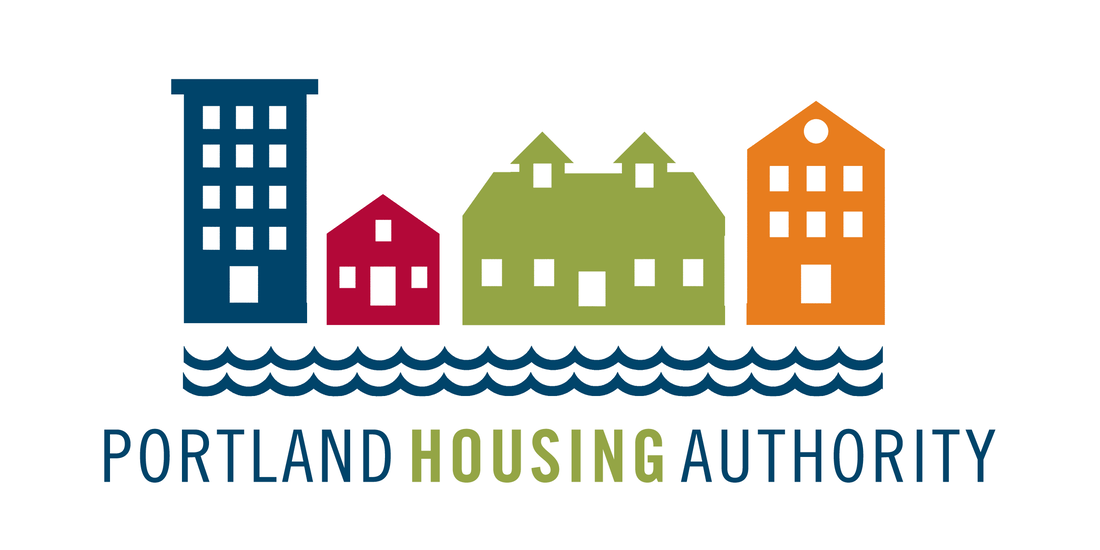About the Portland Housing AuthorityTogether with its community partners, the Portland Housing Authority provides and expands affordable housing and services that improve quality of life, build community, enhance safety and promote personal success for the people we serve and the neighborhoods in which they reside.
Education has been a focus of PHA programming since 1992 when the first study center opened. We have worked hard to turn the study centers into community resource centers and engage learners of all ages and levels. |
About the Study Centers
Currently PHA runs study centers in four neighborhoods: Sagamore Village, Riverton Park, Front Street, and Kennedy Park. The collective goal of the four study centers is to help students become academically and socially successful. However, addressing our goal can take many forms: from the daily study time to group volunteer field trips to a weekly you-name-it club. We have a very long and ever changing list of community partners who support our programs and bring in a wide variety of resources and programs of their own. Each year, AmeriCorps coordinators bring their own personal creativity and utilize existing resources to identify and address the ever changing needs of their students.
The study centers perform the primary function of providing an atmosphere conducive to study, which in many cases is difficult for the students to find elsewhere. In addition, the study centers provide adult supervision that assist the students with any questions or problems they may have on their homework assignments. In addition to assisting students with homework, the study centers try to supplement their education and promote curiosity by doing art projects, playing educational games, and reading with them. The Education Centers also try to bridge the transitional gap for graduating high school seniors through post-secondary/aspirations programming.
The centers are open to community members of all ages and participation is voluntary. The centers follow the school calendar as much as possible, but due to staff training, the timing of grants, and financial constraints, open a little after school starts and sometimes close a little before the end of the school year. The centers are also used for summer programs and as a year-round meeting site for many community groups.
Two coordinators share the task of supervising each center which can be a trying task when 30 students walk through the door with homework. We rely heavily on volunteers from the community to be able to support so many students with such varying needs.
Following the end of the academic year, AmeriCorps members coordinate summer programs which may include a soccer program, the federal free lunch program, CHEETA (teen community development and volunteer program), college prep programs, reading groups, etc.
The study centers perform the primary function of providing an atmosphere conducive to study, which in many cases is difficult for the students to find elsewhere. In addition, the study centers provide adult supervision that assist the students with any questions or problems they may have on their homework assignments. In addition to assisting students with homework, the study centers try to supplement their education and promote curiosity by doing art projects, playing educational games, and reading with them. The Education Centers also try to bridge the transitional gap for graduating high school seniors through post-secondary/aspirations programming.
The centers are open to community members of all ages and participation is voluntary. The centers follow the school calendar as much as possible, but due to staff training, the timing of grants, and financial constraints, open a little after school starts and sometimes close a little before the end of the school year. The centers are also used for summer programs and as a year-round meeting site for many community groups.
Two coordinators share the task of supervising each center which can be a trying task when 30 students walk through the door with homework. We rely heavily on volunteers from the community to be able to support so many students with such varying needs.
Following the end of the academic year, AmeriCorps members coordinate summer programs which may include a soccer program, the federal free lunch program, CHEETA (teen community development and volunteer program), college prep programs, reading groups, etc.
Though the study centers work primarily with children grades 3-12, they are also a resource for Adult Education students and community members.
About the Community Need
Because of language barriers, educational barriers, and a variety of other reasons, many parents and are unable or unavailable to assist their youth with their homework and educational needs. The education centers try to address the multitude of issues students face by helping them develop their talents, instilling a desire for lifelong learning, greater self-discipline, and a sense of academic responsibility. Students in Portland public housing represent cultures from all over the world, most predominantly Somali, Sudanese, Cambodian, Vietnamese, and Iraqi.
Around 300 of the 1,100 youth in public housing attend one of the four study centers and their programs each year.
A brief History of the PHA Study Centers
The original education center opened at Riverton Park in September 1992. It was designed primarily to be an after-school program aimed at helping students become academically successful, promoting inter-generational learning, and performing as a liaison between the local schools and public housing families. Residents in the other family public housing developments heard of the center's success and requested that installations of the same type be replicated in their communities. The program has now grown to include four centers, one in each of the family developments. The centers have become the community focal point for educational assistance and referral resources for residents of all ages.

